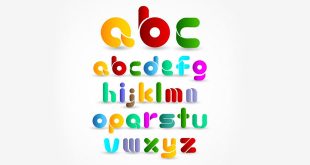Examples of Verbal Irony
- “The cake is as soft as concrete” – the person wants to tell that the cake is not so soft to eat.
- “Water is as clear as mud” – The person actually says that the water is not at all clear.
- “Isn’t it as pleasant as a root canal?” – This implies that whatever occurred was not pleasant at all.
- “As pleasant and relaxed as a coiled rattlesnake” – This implies that the person seems to be relaxed but, can attack you at any time!
- You ended up with some stupid deed and your friends say, “Oh Great”. This may look like sarcasm but it is verbal Irony
- You got completely drenched in rain and scoff at your wet clothes while your friends says, “lucky you” – This cannot be anything else than a verbal irony.
- Verbal Irony always works best with children and is often used by mothers. For example, when a mother sees her children playing video games instead of doing their homework, she may tackle the situation saying, “Once you’re done with your very important work there, let’s take some time out for recreation in the form of some chemistry problems.” Can anything work better than this?
- You say, “Isn’t it warm in here”, and point toward a broken heater. This is the best conveyed “get it repaired fast” message ever.
- “Wow, what a perfect timing! I could finish the entire book!” – Now, how better can you convey that your friend made you wait for hours?
Verbal Irony In Literature
Verbal Irony is an important part of literature because it helps develop either funny or dramatic situations. You can see extensive use of verbal Irony in Shakespeare’s works. Some notable verbal ironies from famous literature are given below:
- Julius Caesar, the famous play written by William Shakespeare, holds an important example for verbal irony: “Yet Brutus says he was ambitious; and Brutus is an honorable man”. This is said by Mark Antony who really implies that Brutus is dishonorable.
- “The Scarlet Letter” by Nathaniel Hawthorne holds another example for Verbal irony. Dimmesdale confesses that he is the “worst of sinners”, but his congregation “did but rever him the more”. He says that if “a saint on earth” could find sin committed by in himself, then they must truly be terrible. By doing this, Dimmesdale wants the people to shun him as they did Hester, but they did the exact opposite.
- “Romeo and Juliet” has several scenes that are highlighted through verbal irony and are blended with extreme skill. In this play, there is a scene where Juliet is upset being told that her father has fixed her marriage with Paris, while she loves Romeo. Though she has fully prepared to marry Romeo, she tells her mother that “I will not marry yet; and, when I do, I swear it shall be Romeo, whom you know I hate, rather than Paris”. Though she implies that she will not marry, anybody else than Romeo, she presented it in such a manner that her mother is quite obviously confounded.
- “I will confess to you that I love him” – one more example for verbal irony from the famous Shakespearian play Romeo and Juliet. The aforementioned statement is made by Juliet. This is considered as verbal irony because, in these lines, Juliet refers to Romeo as her love, but it is presented in a rather treacherous way.
- “My life is my foe’s debt” – this is said by Romeo, where he implies his love with his enemy.
- “Indeed I never shall be satisfied with Romeo till I behold him – dead.” Juliet here talks about her eternal love for Romeo, but she speaks it out in such a way that her mother believes that she wants to kill him.
So, these were some examples of verbal irony with explanations to help you understand the concept better. It is very important that you understand the difference not only between the different types of irony but also the difference in irony and sarcasm. Before looking for the examples for verbal irony, it is advisable that you understand the concept of irony in general. In simple words, it can be a situation or a conversation, where the first part is contradicting the second part or indicating something which is opposite to the literal meaning. Hope this article helped you to understand the concept “verbal irony”.
 Class Notes NCERT Solutions for CBSE Students
Class Notes NCERT Solutions for CBSE Students


